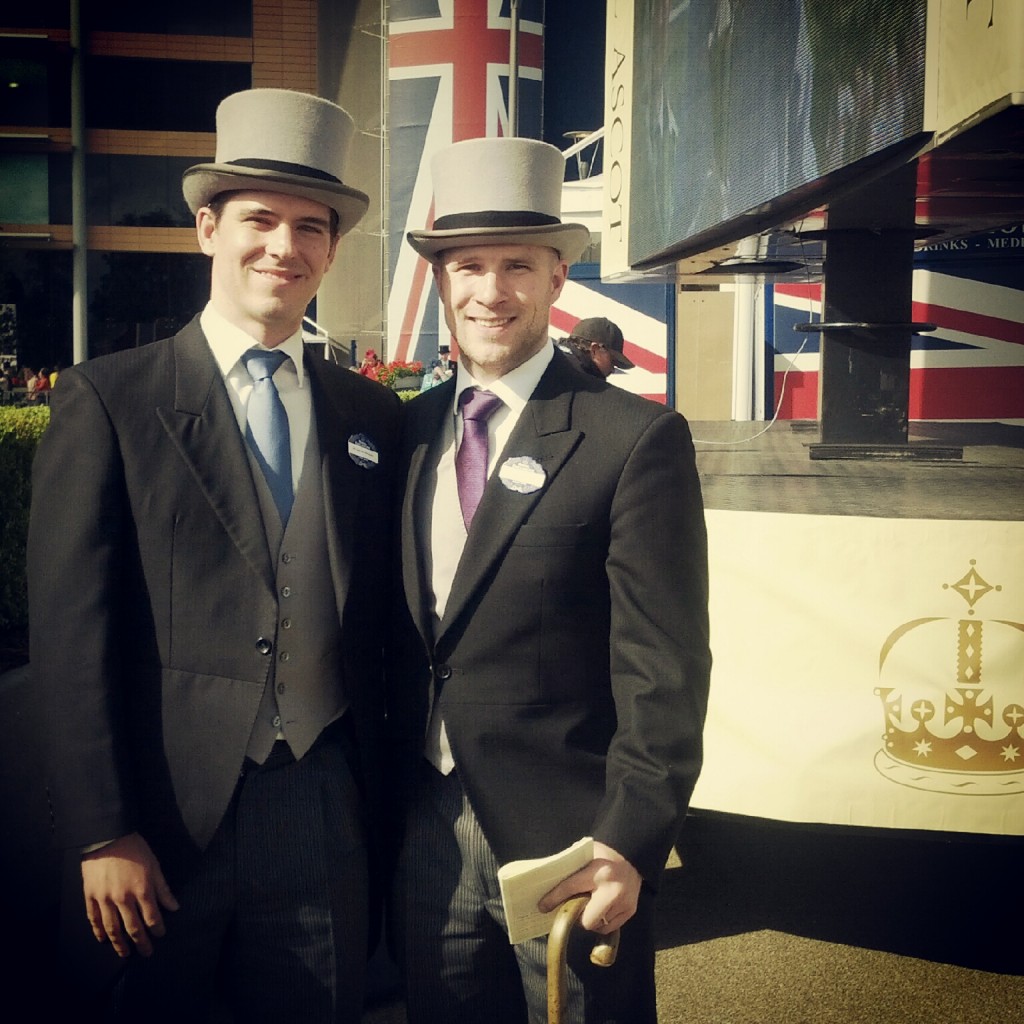Pages
-
Categories
-
Tags
Blogroll
-
RSS Feeds
-
Meta
The next few weeks are mad
Sunday – Amsterdam
Monday – Amsterdam
Tuesday – Oxford
Wednesday – London
Thursday – London
Friday – London
Saturday – York
Sunday – York
Monday – Zurich
Tuesday – Zurich
Wednesday – Zurich
Thursday – Madrid
Friday – Ascot
Saturday – Oxford
Sunday – San Francisco
Monday – San Francisco
Tuesday – San Francisco
Wednesday – San Francisco
Thursday – Spokane
Friday – Spokane
Saturday – Spokane
Sunday – Seattle
Monday – in transit
Tuesday – London
Wednesday – London
Thursday – London
Friday – Cambridge
Saturday – London
Sunday – London
Monday – Brussels
Tuesday – London
Wednesday – London
Thursday – New York
Friday – New York
Saturday – New York
Sunday – in transit
…and so it continues
Seasonality
When I was working on my doctorate, I reviewed thousands of documents: court records, wills, rent rolls, correspondence, petitions, tax records, censuses, parish registers, minutes of city or privy council meetings, and perhaps a dozen other types. In most cases, they offered only fleeting glimpses of the people who lived and worked and died in post-Reformation London. It was rare and indeed wonderful to stumble across an ordinary person who popped up here or there in multiple different sources and allowed me to build up a slightly more nuanced understanding of his (or rarely her) life. Perhaps because of this limit in my sources, one thing seemed very clear to me at the time: for most people, daily life is more influenced by season than by year or even decade. Religious change may have been decreed from on high, new taxes raised, or a tenant’s landlord change, but on a daily basis no change like that compared to the distinction between summer and winter, or the incidence of plague or drought.
Having spent the six years since I left Oxford in an office, I’d unconsciously dismissed this observation as irrelevant to modern life, but I’m increasingly coming to believe that it is no less true today than it was 400 years ago. Working in a factory or an office–with its artificial air and lighting–certainly does insulate an individual from seasonality, but there are a multitude of forces that push in the opposite direction.
Parents, obviously, feel these effects acutely. The passage of school terms and their intervening holidays, measured in weeks, have a direct impact on their daily schedules. They also have a less direct affect on people working in a wide variety of industries. Medicine, tourism, and service industries more generally see a noticeable uptick in activity when school is out. But other industries have their own inbuilt seasonality. Accountants, of course, have a famously busy period of each year, and it is understandable that those who work outside (construction, farming, painting, etc) are dependent on the annual cycles of weather and light. And of course many professions have their own ‘seasons’ that follow the course of the year: retailers, politicians, judges and lawyers, athletes and academics, to name but a few. And even people like me–trapped inside for most of my waking life–are not wholly immune to seasonality: things slow down noticeably in August and December, and both mood and productivity improve as the days get longer.
Seasons do make a real difference, and not just professionally. The types of things I do with my evenings and weekends depend more on the time of year than on the year itself. The things I do, the places I go, and even the alcohol I drink in June 2012 bear more resemblance to June 2007 than to January 2012. And while I’ve never gone in for SAD–shortening days always remind me that Christmas is coming–I can say that I am more creative and energetic in the summer.
In part, of course, seasonality defines itself physiologically and physiologically: light levels, temperature and precipitation all create their own constraints on behaviour. But these are reinforced and possibly even exceeded by human collusion: for completely understandable reasons, we peg events to the seasons, and we use those events to make the passage of time. Those events might be religious (Christmas at the winter solstice or Easter and Passover at the spring equinox) or social (the summer school holidays corresponding to the growing season; Halloween and Thanksgiving after the harvest; Ascot, Wimbledon and Henley at midsummer). It need not be thus–in places where seasons are less pronounced, it’s not surprising to find lunar calendars, so that the holy [lunar] month of Ramadan moves slowly through our own [solar] calendar. But in either case we mark the passage of time through annually recurring events.
We do measure the passage of lifetimes as well, but I would argue that their random distribution makes them less poignant than the annual events. The recognition of moving from one state of life to another, and the anniversaries thereof, are personal and momentous rather than continuous events. Again there are both religou and social markers. In the Catholic Church, our sacraments are meant to co-opt grace on the passage of human life: baptism (most frequently soon after birth), confirmation (puberty), marriage or holy orders (adulthood), and extreme unction and the rite of Christian burial (death). We have our secular markers as well: civil marriage, reunions, anniversaries, retirement parties, etc. These are meant to mark the passage of a life. The UK has even experimented with naming ceremonies, a societal mechanism to mark a birth as a secular alternative to a christening. I’m not entirely convinced they’ve been particularly popular though. It turns out there are relativley ew markers like the Queen’s Diamond Jubilee, which marks the passage of decades on a society level: celebrations of V-E day or emancipation day have trouble surviving to be celebrated much beyond the first generation., and so in some sense these societal mechanisms for marking the passage of longer periods of time seem to rely on personal connections as well.
I believe this makes sense because annual events are in proportion to our lived experience. As in archtecture and art and urban planning, exceeding human proportionality may have great impact, but it’s unlikely to inspire sympathy or loyalty or long-term engagement. (I’ll leave you to guess whether I’m a Jan Jacobs fan.)
Reflections on monetary union
“It is clear that such agreement will be limited in inverse proportion to the homogeneity and the similarity of outlook and tradition possessed by the inhabitants of the area. Although, in the national state, the submission to the will of a majority will be facilitated by the myth of nationality, it must be clear that people will be reluctant to submit to any interference in their daily affairs when the majority that directs the government is composed of people of different nationalities and different traditions. It is, after all, only common sense that the central government in a federation composed of many different people will have to be restricted in scope if it is to avoid meeting an increasing resistance on the part of the various groups which it includes.”
Friedrich Hayek, ‘The Economic Conditions of Interstate Federalism’, 1939.
A jubilee year?
It’s HM The Queen’s diamond jubilee, but I wonder what would happen if we extended it to everyone…
Over the weekend I read a review of a couple new books about debt in the LRB. The review itself is definitely worth a read, as does Debt: The First 5000 Years by David Graeber. Now I disagree with Graeber on lots of things. I’m not an anarchist to begin with. And I think the Occupy movement would be much more useful to itself and to society if it had actual policy objectives rather than simply demonstrating fringe discontentment and the ability of horizontal structure to work in groups of limited size and complexity for limited period of times.
His book (and the review) did, however, echo a thought I’d had a couple of days previously: given that we all abandoned the gold standard four decades ago, what would happen if we declared a biblical-style jubilee: a forgiveness of all debts, with some protections for depositors in financial institutions. Considering that the total level of debt far exceeds the total amount of wealth in the world, resetting might not be a bad thing.
There was one particularly interesting quote in the review, which might actually be an awesome idea:
The response of Western officials to the economic crisis, with its proximate cause in unsustainable consumer debt, has been to ensure that banks suffer as few losses as possible, while relying on the same indebted consumers – in their role as taxpayers – to keep the bankers whole. The Fed and now the ECB have loaned banks money at virtually no cost, encouraging those same banks to purchase government bonds paying much higher rates of interest: a direct subsidy of finance by the public, while millions sink into unemployment and bankruptcy. A far simpler and more effective monetary policy would have been for the government to print a new batch of money, distribute an equal amount to everyone, then sit back and watch as stagnant economies were stirred to life by the spending and debts were paid down and eroded by temporarily higher inflation. The inconceivability of such a policy is a mark not of any impracticability, but of the capture of governments by a financial oligarchy.
Of course, you shouldn’t take me all too seriously: my other major (and definitely more practical) thought of the weekend was that we should make the kitchen in our new flat be entirely composed of an island. Awesome? Awesome.
Reminder of the cultural value of the web
If you’re in Britain, you should definitely listen to this week’s episode of The Choir before the iPlayer version expires in a week. It’s called ‘The American Sardinians’:
In January 2011 four Americans, under the name ‘Tenores de Aterue’, shared their home-grown passion for Sardinian singing with a video performance on YouTube. To their amazement it went viral – in Sardinia! To this day, the singers have never been to Sardinia, and understand very little of the language they are singing. Aled Jones is joined from the US by this quartet of musical explorers and hears their story in music and words.
They discovered the music on YouTube and have shared it on YouTube…a reminder of the little ways in which the web helps spread, diversify and protect our cultural heritage.
Would this be awesome of awful?
Andrew and I are reading listening to Howards End right now. It’s my favourite novel. It’s my 7th or 8th time going through it, but I always learn new things. It’s Andrew’s first time, and he’s enjoying it too, though he says it’s a bit slower going than the Hunger Games. Who would have thought?
Anyway, there’s a passage in Chapter 15 that got me thinking:
The dinner-party was really an informal discussion club; there was a paper after it, read amid coffee-cups and laughter in the drawing-room, but dealing more or less thoughtfully with some topic of general interest. After the paper came a debate, and in this debate Mr. Bast also figured, appearing now as a bright spot in civilisation, now as a dark spot, according to the temperament of the speaker. The subject of the paper had been, “How ought I to dispose of my money?” the reader professing to be a millionaire on the point of death, inclined to bequeath her fortune for the foundation of local art galleries, but open to conviction from other sources. The various parts had been assigned beforehand, and some of the speeches were amusing.
Now I’m told there’s a show on television called Come Dine with Me. I’ve never actually seen it, but as I understand, the concept is that a group of people have dinner at one another’s houses, and then rate one another’s cooking. And they put that on television. Or something. I believe some people set up these types of things in real life too.
That seems all well and good, but why not add an essay into the mix? Probably not the cook, but maybe the person who cooked previously. Two thousand words on a topic of general interest, followed by discussion. It would be like blogging only less solitary. And more intellectually challenging…which often seems missing from my life.
Anyway, I think I’d enjoy it, but I’d have to convince other people that they’d enjoy it. And also that it’s not like wearing hats. I wish I could wear more hats…when did gentlemen stop wearing hats outdoors? It was an awful move. But now I can’t just start wearing hats, because it would seem affected. Sigh. Is my essay dinner club affected? I hope not. Maybe I should start wearing hats anyway. It would be good to protect my bald head from the evil sun, anyway. And my essay dinner club would be a good way to stop my brain from atrophying. Feedback welcome.
Signs I’m getting older
Yesterday Andrew and I celebrated the 6th anniversary of the first time we met. We tend to celebrate just about every date we can remember from the progression of our relationship:
- meeting (18 May)
- first ‘date’ (7 June),
- the infamous surprise (15 June),
- moving in together (11 Jan),
- going steady (11 Feb),
- engagement (13 March), and
- wedding (26 August).
That’s where it ends, for now at least. And yes, those are the order in which those things happened. I always say it’s because I’ll take any excuse to find Andrew a present and go out for a nice meal. That’s certainly part of it (we went to L’Autre Pied last night, btw. Great food. Mediocre service). But a bigger part of it is that in the absence of an academic year, time blends into itself so easily, and having milestones divides up time into a more human scale. I suspect that’s no small part of the durability of holidays and religious festivals, but that’s a topic for another blog post.
Andrew turned 30 a couple weeks ago, and he was none too happy about it. Getting older has never bothered me, and in fact there are lots of parts of getting older that I quite like:
- being able to listen to audio books unashamedly (I just downloaded 35 hours of Middlemarch: game on!),
- going home early,
- getting up early,
- being able to afford nice things,
- not destroying the nice things I own,
- patience,
- self-knowledge, and
- being able to ride a bike without my hands.
There was a great quote from a 30 Rock we watched the other day: I like to keep Boss Liz and Friend Liz separate, because Boss Liz is all “Paperwork paperwork!” but Friend Liz is like “My feet hurt, I’m staying in tonight.” Exactly.
The only thing that makes me sad about getting older is that other people get older too, and I don’t get to spend nearly as much time with the people I love as I would like.











